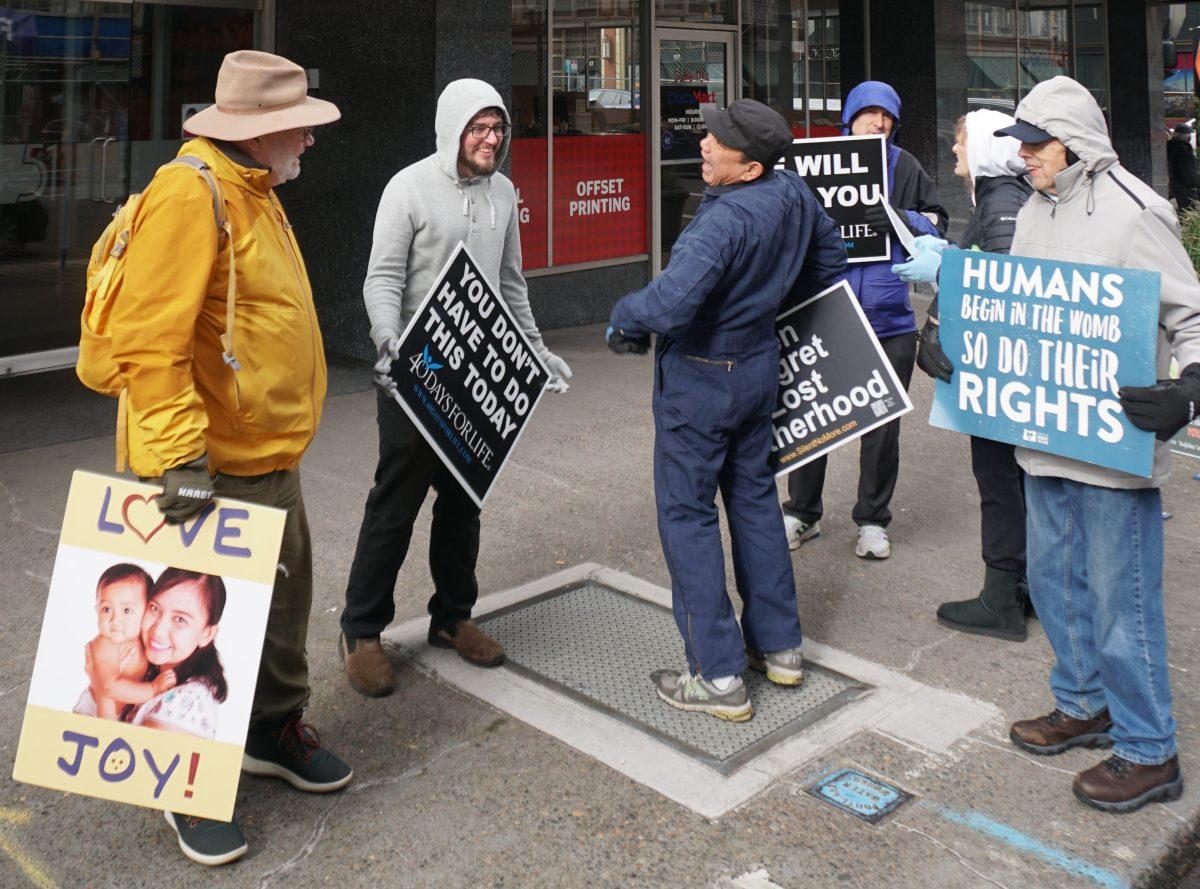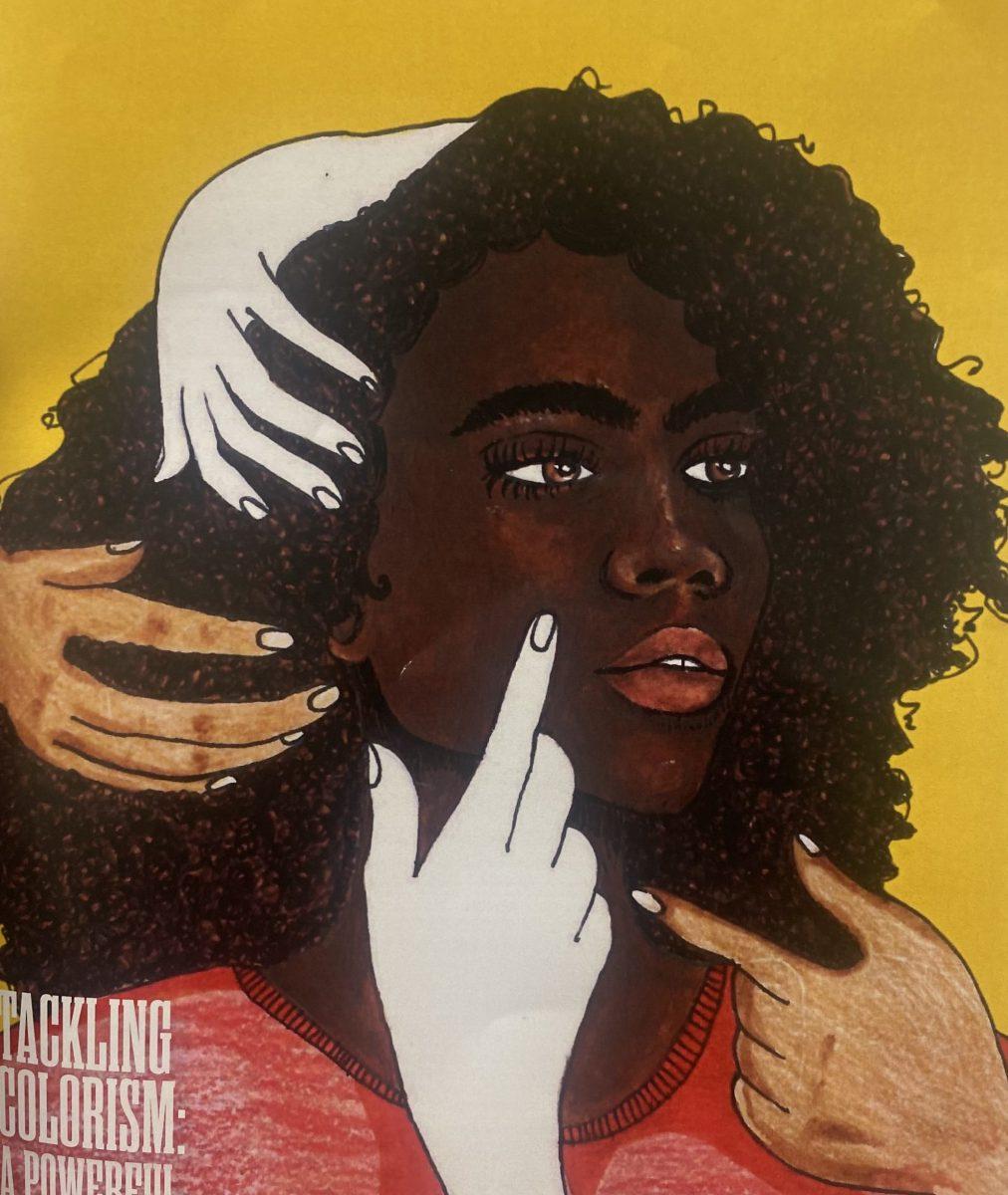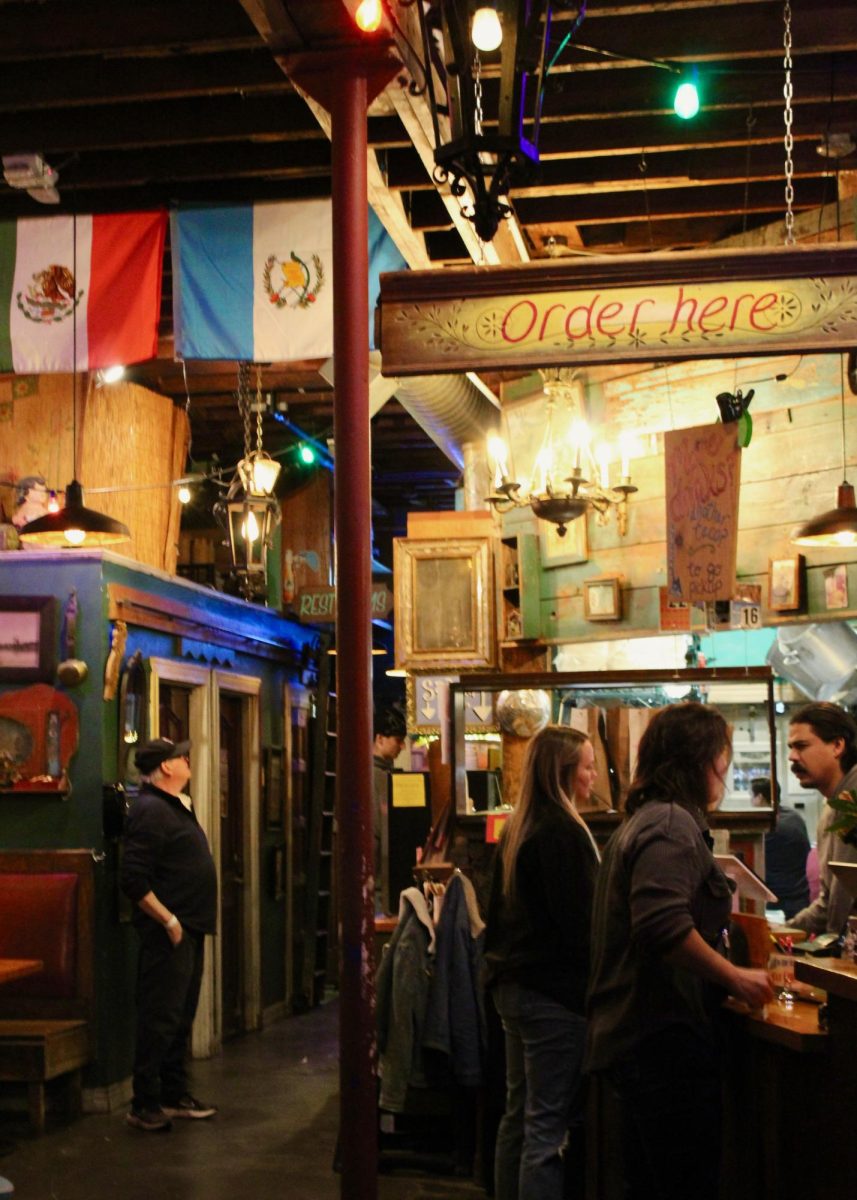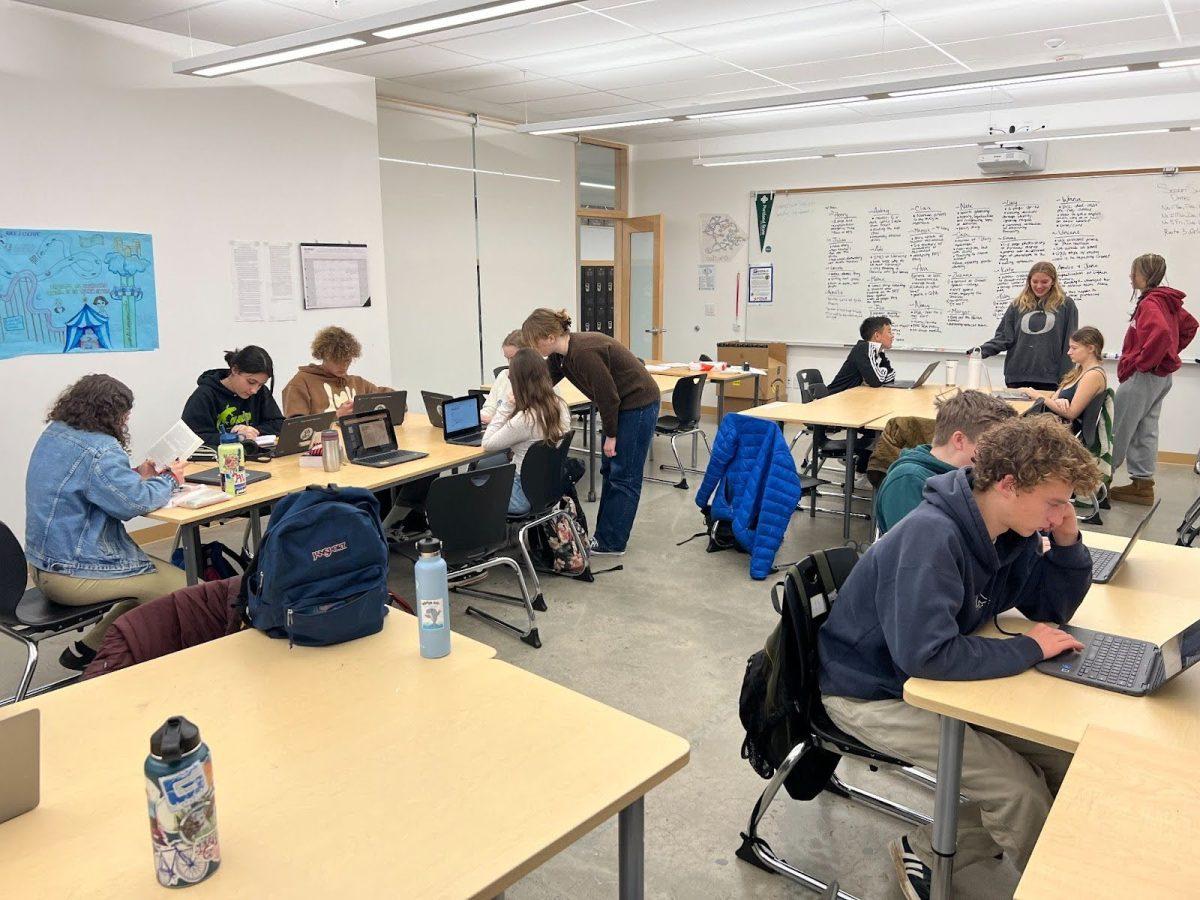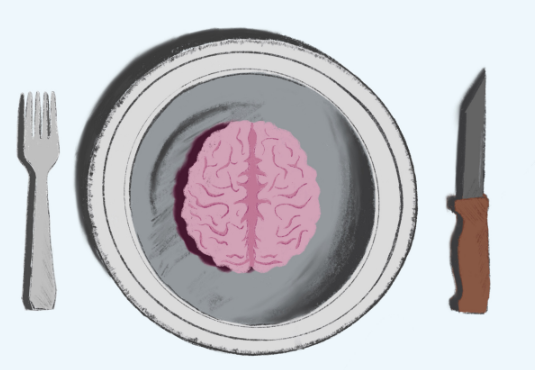Content Warning: sexual violence
Most streets in Downtown Portland bustle with residents hurrying from place to place, or tourists wandering between restaurants. On SW Washington Street, however, the scenery is different.
The Portland Medical Center employees are all too familiar with the sight of pro-life advocates standing outside of their doors and blocking the flow of pedestrians on the sidewalk. They stand in a cluster, holding signs that read “Men Regret Lost Fatherhood” and “Women Do Regret Abortion.” The Lilith Clinic is located on the top floor of the building and is the target of these anti-abortion protests.
The Lilith Clinic stands alone as the only privately-owned abortion clinic in Oregon, and the only one in the state offering third trimester abortions outside of hospitals. Accessibility is a top priority at the clinic, even with ongoing protests outside its walls.
Services at the Lilith Clinic are thousands of dollars less expensive than those offered at the Oregon Health and Science University (OHSU), and the clinic often serves lower-income individuals who would otherwise face barriers to abortion care. The Lilith Clinic’s employees are committed to keeping their doors open for the people of Oregon, even as the ongoing abortion debate threatens access across the country.
Prior to the opening of the Lilith Clinic in March 2021, Oregonians sought third-trimester abortion services from the Lovejoy Surgicenter. Lovejoy served Oregon residents and individuals from neighboring states who may have faced difficulties accessing abortion care otherwise.
The Lovejoy Surgicenter closed in January 2021 after nearly 50 years of service. The clinic had become inhospitable to patients and employees alike due to its outdated medical equipment and facility.
A former employee of Lovejoy, Scott Jones, says, “I think it got to a point where they realized it would cost them too much to update the facility, so they elected to just close it.”
Jones is a practicing nurse anesthetist at the Lilith Clinic. He has been labeled with a fake name to protect his anonymity as an abortion health care worker.
Employees of the Lovejoy Surgicenter found the workspace challenging. “It wasn’t dangerous or unsafe, but it was really uncomfortable to be there,” says an anonymous employee, “People and patients weren’t going back because the paint was peeling off the walls, and the building was so freezing.”
Despite these drawbacks, the clinic closed with generally high client reviews and was acclaimed as a longstanding institution for reproductive healthcare in Portland. The closure left a critical gap in abortion access in the Portland area.
Safe abortion services became obtainable in Oregon when the state legalized the procedure in 1969, four years before Roe v. Wade made the procedure a constitutional right in all 50 states. Oregon does not have any restrictions on abortion. If the Supreme Court elects to overturn Roe V. Wade, Oregon law will preserve the right to an abortion for its residents, making it a destination state for people seeking reproductive services.
Many see abortion access as a vital aspect of basic health care. Aoife Brogan is a junior at Grant High School and a student in the Let’s Talk! Club, which supports peer-led sex education across the Portland Public Schools. Brogan says, “Having abortions available always makes safe sex more comfortable for people because, if worst comes to worst, you always have a backup option.”
Access to abortion directly impacts Grant students, as members of the community have sought abortions themselves. The co leader of the Women’s Empowerment Club, Katherine Currie says, “I personally do know people who have had abortions who go to Grant and I think that that has definitely impacted people, having access to groups like Planned Parenthood is really really important for teenagers.”
Privately-owned clinics are key providers for abortion care, so their closures are devastating to communities. According to a study conducted by the Guttmacher Institute, of the abortions provided in 2017, 95% were provided in privately owned clinics.
When the Lovejoy Surgicenter closed, Portlanders were forced to travel farther distances in order to receive affordable services. This led to high numbers of people seeking care from clinics surrounding Portland, which increased wait times for patients.
Abortion rights are health care, even for those who do not plan to exercise them. Senior Ella Nuttbrock, the Let’s Talk! Club leader, says that limited access to abortion “takes away your feeling of freedom and your feeling of safety.”
Two months after the closure of Lovejoy, the Lilith Clinic opened in Downtown Portland. Though not as large as Lovejoy had been, the clinic is working to fill the gap that the closure left behind. The clinic focuses on providing safe, accessible and affordable care that offers late-term services.
The Lilith Clinic opened its doors in March of 2021 during the ongoing COVID-19 pandemic. Many staff members, including Jones, carried over from Lovejoy to the Lilith Clinic. Jones says, “Just because there was a pandemic … the need for health care for women didn’t go away.”
He adds, “We couldn’t stop taking care of our patients, we just needed to adapt.”
Consistent anti-abortion activism outside the Lilith Clinic creates challenges for staff and patients. Nearby business owners have expressed concerns about how the protesting has disrupted their work. Jones says, “The (protestors) are still there, they don’t go away. That’s part of the challenges of working in this field, they’re always there. But we don’t let it stop us.”
Anti-abortion advocates often pose a threat to those providing and protecting abortion care, and the conflict surrounding the profession makes it hard to find people willing to do the work. Doctors would often rather opt for higher-paying or less politically controversial jobs. “There’s not a lot of people that do this kind of work,” says Jones.
Jones has been confronted verbally by protestors throughout his years serving at Lovejoy and Lilith. He says, “Typically (protestors) tell me that they want to pray for me or help me find another job, but I have never been physically threatened.”
Grayson Dempsey, the head of public representation for the Lilith Clinic, says, “It can be easy to be pro-choice when you don’t have to walk by protestors every morning … and that’s the goal of the protestors, they want people to be saying ‘not in my backyard.’”
Abortion clinics have to bear the added costs that protests bring, like increased security. Samantha Gladu from the National Network of Abortion Funds says, “It’s just really cruel and vicious that protestors decide to inflict their ideology on people during a really intimate and basic health care procedure.”
While the staff of the Lilith Clinic declined to comment further on the relationship between the clinic, the landlord, and other local business owners, Dempsey admits, “It’s been a challenge.”
Today, with a conservative majority on the Supreme Court of the United States, pro-choice advocates worry that Roe v. Wade is on the line. In May of 2021, Texas enacted Senate Bill 8, which functionally overturned the right to an abortion in the state. If the Supreme Court elects to overturn Roe, over 26 states are likely to ban abortion.
If majority-Republican states limit abortion access, their citizens will turn to Democratically-controlled states to get abortion care. Privately-owned clinics in places like Oregon and Washington, like the Lilith Clinic, will see an increased number of patients traveling long distances to get services.
Nationally, the number of privately-owned abortion clinics is declining, and according to the Abortion Care Network, has fallen more than 32% since 2012. Dempsey says, “We feel strong, we feel steady, but we know that the trend is going downward, and we are hoping to change that.”
These downward trends will affect abortion accessibility across the nation, most disproportionately impacting Black and Indigenous women of color. While the US Census estimates that Black people account for 13.4% of the national population, the Guttmacher Institute reports that 37% of abortions are obtained by Black women. Resources for pregnancy and abortion can allow individuals to feel empowered in their own journeys to parenthood. This support is particularly important for women of color.
Jaime Cale is a lead organizer for MXM BLOC, a group of Black mothers working to support other Black women and children in the Portland community. “We’re all Black moms, and we all have very different stories in regards to reproductive rights,” says Cale, “Some of us have had to go through cheap fertility treatments, some of us have had abortions, some of us have adopted.”
Indigenous women are twice as likely to experience rape or sexual assault compared to women of other races, making options for unplanned pregnancies even more critical. Despite the increased potential need, Indigenous women face many of the most significant barriers to abortion access.
The Hyde Amendment of 1976 states that federal funds cannot be used to pay for an abortion unless it is a circumstance of rape or incest or a matter of saving the pregnant person’s life. Indian Health Service facilities are supported by federal funding. For most Indigenous women, these facilities are the primary sites for reproductive health care. This barrier to reproductive rights perpetuates the poverty that Indigenous women face.
Dr. Jennifer Lincoln works as an obstetrics and gynecology practitioner (OBGYN) at Providence St. Vincent Medical Center and uses her expertise to advocate for reproductive justice on social media. She says, “When you tell people that they don’t have choice or agency over their own body in a system that already tries to keep that from them … that’s a complete human rights violation.”
Economic barriers prevent people from exercising their health care options when unplanned pregnancies occur. Medicaid is a public insurance program that provides health coverage to low-income families and individuals, and Oregon is one of 16 states in which Medicaid offers coverage for abortion care. Dempsey says, “We really speak to the importance of Medicaid coverage for abortion care.”
The New England Journal of Medicine reports that rates of unintended pregnancy among those living below the federal poverty level are two to three times that of the national average.
Lower-income individuals are more likely to experience travel barriers, which exacerbates inequities in receiving abortion access. This disproportionately affects lower-income individuals, teenagers, Black and Latiné communities, uninsured people and undocumented immigrants.
The Lilith Clinic typically sees younger, college-aged clients and occasionally high school-aged patients. Dempsey says, “We need to meet teens where they’re at and make sure that they have the resources they need to be healthy.”
When reproductive liberties are threatened anywhere, youth respond everywhere. In Oct. 2021, over a thousand marchers joined together in Southeast Portland to participate in the Portland March for Reproductive Rights. The March was organized in response to Texas’ passing of Senate Bill 8. Brogan, who attended the march, says, “If we lose access to abortion, that affects every high school student.”
Organizations like Fund Texas Choice are working to support individuals traveling long distances to receive abortions. However, if Roe v. Wade were nationally overturned, community-ran organizations would be incapable of supporting an ample number of patients. The Fund Texas Choice has had to turn away half of their calls since Senate Bill 8 was enacted, and 70% of their clients are Black and Indigenous people of color.
Idaho is the nearest state to Oregon that will likely overturn the right to an abortion if the Supreme Court elects to. “The biggest influx (of clients) that we anticipate seeing is from Idaho, where we will really need to have a robust response to the lack of abortion care,” says Dempsey, “People need to be able to get here, get the care that they need, and get back to their communities.”
Staff remain optimistic about the future of the clinic. It has “a nice office and a new building … the morale is high, the employees are happy to be there,” says Jones. He adds, “Our employees are very dedicated to the care and the mission of the organization, and the care of the population.”
The Lilith Clinic remains open to minors who need to access abortion services. When an individual in Oregon turns 15, the Health Insurance Portability and Accountability Act (HIPAA) protects their individual right to their health information and sets regulations on who can access it. This means that teenagers over15 can consent to medical services without parental permission.
The Lilith Clinic is a short commute from Grant High School and accessible via public transit. If the clinic were to shut down operations due to a variety of circumstances, late-term abortion services would be less accessible for Grant students. Residents of Northeast Portland would still be able to access non-late term abortion services from a nearby hospital or a Planned Parenthood.
Abortion advocacy can be discouraging work, especially when more states are gradually coming forward in favor of a federal overturn of Roe V. Wade. Dempsey says, “It’s sort of like watching a slow avalanche … people of all ages in Portland keep asking me ‘What can we do?’ and in some cases, I just have to say ‘I don’t know.’”
Fundamentally, Dempsey believes that the key to ending the abortion debate is to destigmatize the topic. “We need to talk about abortion, support the people we know and love who are making decisions about pregnancy and share our abortion stories,” says Dempsey, “I have to keep being passionate about abortion access because the other side never stops trying to take it away from us.”
Portland is overwhelmingly pro-choice, and Oregon voters consistently support pro-choice candidates. Grant community members who feel passionately about protecting abortion care have no shortage of avenues by which they can advocate for it, on and beyond the ballot.
Lincoln is a proponent of digital reproductive justice advocacy. Throughout her time on social media, she has amassed over 2.6 million followers on Tik Tok, a video-sharing platform. She says, “It’s important that people who are watching us from Texas can feel like ‘I can’t speak up right now’ or ‘my voice is being minimized, but I know that there are others across the nation who are fighting for me.’”
Lincoln says, “It may feel stupid to make a Tik Tok or a post … but you can get in front of so many eyes. Don’t count yourself out because you can’t vote.”
Abortion is a standard health care procedure. “Everyone loves someone who’s had an abortion,” says Dempsey. “If everyone knew those stories, I’d like to think that we’d have a little more compassion.”♦




























